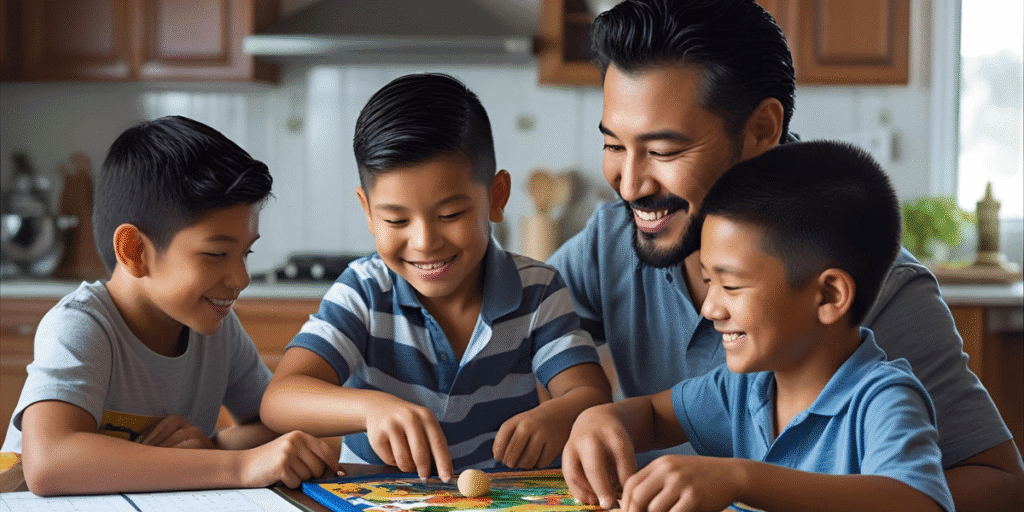Fatherhood in the United States is undergoing a transformation. As societal norms shift, more fathers are becoming deeply involved in caregiving and household responsibilities. This evolution has been particularly pronounced in 2022, with younger generations of men embracing a hands-on approach to parenting. However, while fathers today are more engaged, they also face new challenges that include work-life balance and mental health struggles.
A Shift Toward Equal Parenting
One of the most notable trends in modern fatherhood is the growing involvement of fathers in parenting. In 2022, studies show that a significant 70% of fathers report sharing equally in parenting duties, a notable rise from previous decades. This marks a departure from past expectations, where fathers were primarily seen as financial providers while mothers took on the bulk of caregiving responsibilities.
This shift reflects the changing dynamics in many American households. Fathers are no longer confined to providing financially but are now more emotionally present and engaged in their children’s lives. From diaper changing and bedtime routines to school drop-offs and helping with homework, fathers are taking on these everyday tasks with increasing frequency.
Younger Fathers Lead the Change
The trend toward equal parenting is especially prevalent among younger fathers, such as Millennials and Gen Z. These generations view active involvement in their children’s lives as a critical aspect of their roles as fathers. Many of these men actively seek out time with their children, engaging in play, reading together, and making an effort to bond emotionally.
This change is reflected in their parenting styles as well. Young fathers are likely to share parenting duties equally with their partners, challenging traditional gender roles. By doing so, they have helped dismantle long-held stereotypes of fathers as distant or less nurturing. This evolution in fatherhood is part of a broader societal shift toward gender equality, with men and women increasingly sharing both domestic responsibilities and the emotional labor of parenting.
The Work-Life Balance Dilemma
While there is progress, fatherhood in 2022 is not without its challenges. One of the biggest hurdles that fathers face today is balancing their professional lives with their growing responsibilities at home. The demands of work, combined with the desire to be present for their children, can often create tension. Many fathers struggle to meet the expectations of being both a successful professional and a dedicated, hands-on parent.
For many fathers, work-life balance remains an elusive goal. Despite progress in workplace policies such as paternity leave and remote work opportunities, the pressure to meet career goals while nurturing a family can lead to stress and burnout. This is particularly true for fathers who feel an added burden to financially support their families while also being emotionally and physically present in their children’s lives.
The toll of this pressure is significant, as many fathers report feeling guilt or frustration when they are unable to fulfill all the roles they believe they should. This internal conflict between career aspirations and family involvement can contribute to mental health struggles such as anxiety, depression, and exhaustion. Fathers, particularly those with younger children, may also face challenges in adjusting to the new responsibilities that come with modern fatherhood.
Mental Health and Self-Care for Fathers
The mental health of fathers has garnered more attention in recent years, especially as the pressures of fatherhood and work continue to mount. Mental health experts emphasize the need for fathers to prioritize self-care and seek support when they need it. The stress of balancing multiple roles can be overwhelming, and it’s important for fathers to understand that it’s okay to ask for help.
Fathers often face a unique set of stressors. They must juggle the physical demands of parenting with the emotional weight of being a provider and partner. These overlapping pressures can contribute to burnout, which is why self-care is critical. Mental health professionals recommend that fathers make time for activities that replenish them, whether it’s exercise, hobbies, or simply taking time for themselves away from the demands of parenting.
Building strong support systems is another crucial step. Fathers are encouraged to connect with other dads, whether through online groups or in-person meetups, to share experiences and build camaraderie. Therapy and counseling services are also valuable resources for fathers experiencing stress, offering a space to process their emotions and gain tools for managing the pressures of modern fatherhood.
Conclusion: Evolving Fatherhood in 2022
Fatherhood in America is undoubtedly evolving. Fathers today are more engaged than ever before, challenging old stereotypes and actively participating in their children’s lives. However, with this increased involvement comes a new set of challenges—particularly when it comes to balancing work and family life, as well as addressing mental health concerns.
As fathers continue to redefine their roles, it is crucial that society supports them in their efforts to be both loving and present caregivers. Encouraging self-care, fostering supportive communities, and advocating for better work-life balance policies are essential steps toward ensuring that fathers can thrive in their roles. Fatherhood in 2022 is not only about providing for a family financially but also about emotional presence, partnership, and self-care.
